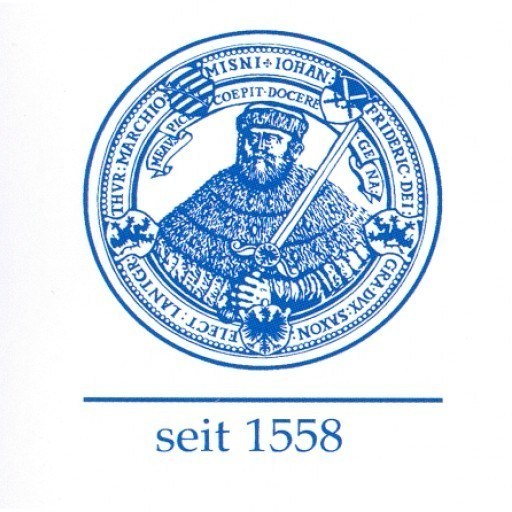Photos of university / #imperialcollege
Photonics at Imperial College London offers a comprehensive and cutting-edge educational experience designed to equip students with the fundamental knowledge and practical skills necessary to thrive in the rapidly evolving field of photonics technology. This advanced program combines theoretical principles of light manipulation, optical communications, laser systems, and optical materials with hands-on laboratory experiments and industry-relevant projects. Students will explore a wide range of topics including laser physics, optical sensors, integrated photonics, and telecommunications, gaining insights into both the scientific foundations and the engineering applications of photonics systems. The curriculum is carefully structured to foster innovation, critical thinking, and problem-solving abilities, preparing graduates to contribute effectively to industries such as telecommunications, healthcare, manufacturing, and defense. With access to state-of-the-art laboratories and collaboration with leading industry partners, students are encouraged to undertake research projects that address real-world challenges and technological advancements. The program also emphasizes the development of professional skills, including project management, technical communication, and teamwork, ensuring graduates are well-prepared for careers in academia, R&D, and industry. Imperial College’s distinguished faculty members, many of whom are pioneers in photonics research, provide personalized mentorship and support throughout the course. Graduates of this program will be equipped to lead innovation in photonics, drive technological breakthroughs, and contribute to the development of next-generation optical devices and systems. Whether aiming for a career in research, industry, or entrepreneurship, students will emerge from the program with a deep understanding of photonics science and practical expertise, ready to shape the future of optical technology worldwide.
The MRes course runs from October to September each year.
It is aimed at students who wish to develop their research interests and skills in photonics. It will:
- give you the experience of undertaking a major, individual, project and reporting the results in a full scientific report and presentation
- train you in appropriate research methods
- develop your written and oral communication skills for both specialised and non-specialised audiences
- equip you for further academic study at doctoral level in photonics, and in subjects where photonics is an important enabling science
The taught element in the first term will improve your knowledge of photonics through lectures and a substantial taught laboratory element, which reinforces the practical skills demanded by further research. These elements of the course are shared with the MSc in Optics and Photonics offered by the Department.
From the second term onwards a significant research project is undertaken as a more thorough preparation for students starting their PhD studies. In addition, there is an opportunity to take optional courses in the second term from the MSc in Optics and Photonics, where it is considered relevant to your research project.
Written examinations are held in January and April/May for any optional courses. The laboratory work is continually assessed during the course. The final project is assessed by oral presentations and a dissertation submitted in September.
MODULES
Core modules
- Imaging
- Optical communications physics
- Lasers
- Optical measurement and devices
- Laboratory work
- Self-study project
- Nine-month research project
Optional modules
- Biomedical optics
- Fibre optics
- Laser optics
- Laser technology
- Non-linear optics
- Fibre communications
- Optical design
- Optical design laboratory
- Optical displays
- Optoelectronic components and devices
- Photonics structures
- Quantum optics
Note: optional modules are subject to change
As many of the students registering for the MRes will be continuing to PhD studies the entry requirements for the MRes match those for PhD studies in the Department, namely a first class honours degree, or an equivalent overseas qualification, in Physics or a relevant engineering subject.
If your first degree is from a country other than the UK, you may find the guidelines within our Country Index helpful. Please note that these guidelines indicate the College minimum.
The MSc in Photonics at Imperial College London offers a range of financing options to support students throughout their studies. The program's tuition fees vary depending on the student's fee status, with international students typically paying higher fees than UK residents. The current tuition fee for UK students is approximately £13,750 per year, while international students are charged around £30,000 per year. These fees are subject to annual increases, and prospective students are advised to consult the official college website for the most up-to-date information.
Financial support is available through several channels. Imperial College London provides scholarships specifically aimed at postgraduate students, which are highly competitive and are awarded based on academic merit and potential. For instance, the Imperial College PhD Scholarships and Imperial College President's Scholarships can potentially cover tuition fees entirely or contribute toward living expenses. Additionally, the college participates in various national and international funding schemes, including chevening scholarships, Commonwealth scholarships, and research council funding, which may be applicable to students pursuing a master's degree.
Students are encouraged to explore external funding sources such as government student loans, private loans, and sponsorships from relevant companies or organizations in the photonics industry. Some students may also find part-time work opportunities, either within the college or in the surrounding area, to help cover living costs. Imperial College London offers a dedicated Financial Support team to assist students in identifying suitable funding options and providing guidance on the application process.
For UK students, the Postgraduate Loan Scheme administered by the UK government allows eligible students to borrow up to £11,836 for master's programmes, which can be used to support tuition fees and living expenses. International students are advised to seek scholarships, sponsorships, and external awards early in their application process to maximize their chances of financial assistance.
Overall, financing a Photonics MSc at Imperial College London requires careful planning and proactive engagement with available funding opportunities. Students should begin researching options well before the start of the programme to ensure they can meet their financial commitments comfortably.
Tuition fees:
- Home/EU Full-time — £9,000
- Overseas Full-time — £24,000







